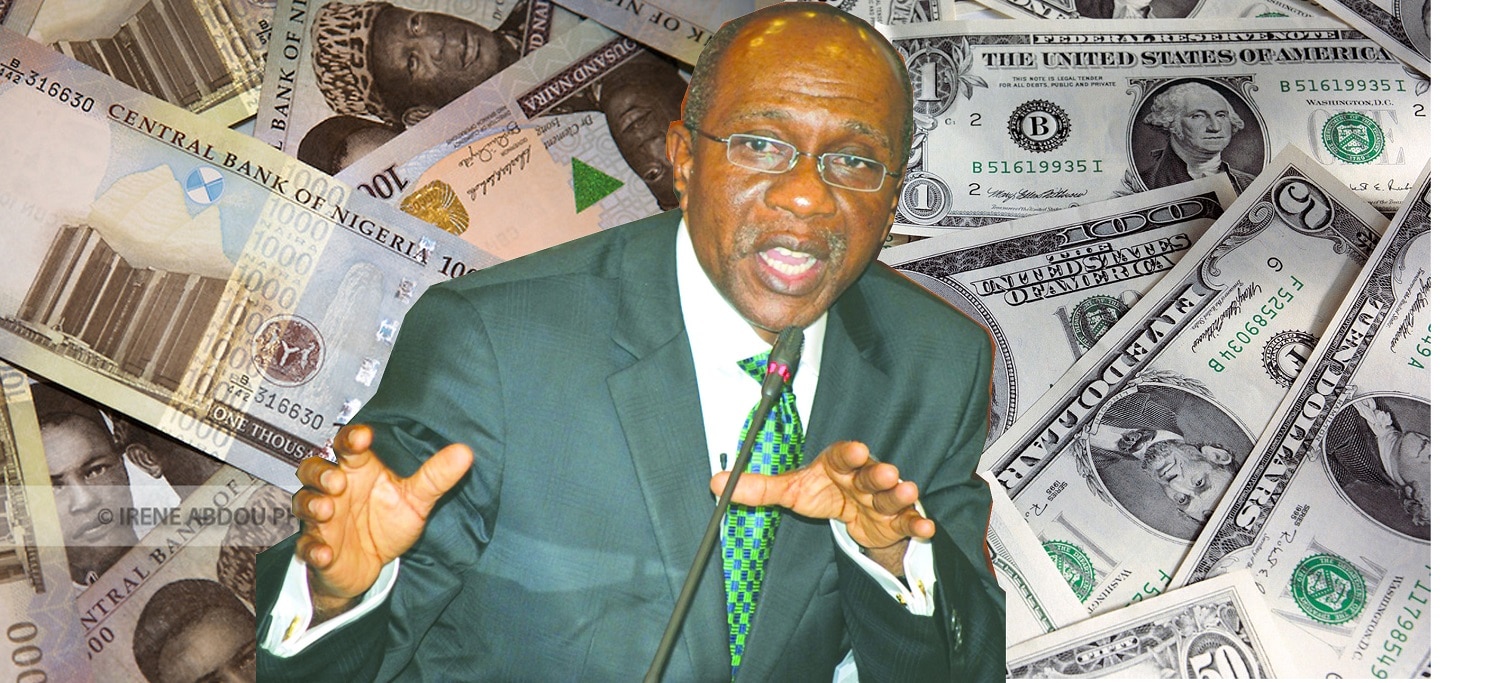Finance
Naira gains 4.4% despite $168m decline in CBN foreign reserves
Published
4 years agoon

Nigeria’s foreign exchange reserve sustained its decline as the Central Bank of Nigeria (CBN) stepped up its interventions in the FX market. Thus, the gross reserves closed lower by $167.67 million week-on-week to $41.535 billion as of 12th November 2021.
This however did not deter naira, the local currency, from gaining up to 4.4% against the greenback at the parallel market, to close the week at N540 per dollar. However, the Nigerian currency depreciated by 0.2% to N415.10 per dollar at the I&E window (IEW) to reflect the decline in the CBN foreign reserves.
Read Also:
At the IEW, total turnover last week increased by 15.8% to $654.38 million, with trades consummated within the N404.00 – 453.15/$1 band.
In the Forwards market, the 1-month (+0.1% to N415.85/$1), 3-month (+0.1% to N421.86 per dollar), 6-month (+0.1% to N430.99 to one dollar) and 1-year (+0.7% to N447.63/$1) contracts reflected appreciations of the naira to the greenback.
Although the CBN has enough liquidity to support the market in the near term, experts believe that foreign inflows (53.8% of FX inflows to the IEW pre-pandemic) are paramount for sustained FX liquidity over the medium term given their level of importance in the IEW.
Meanwhile, expert posited that further adjustments in the naira-dollar peg closer to its fair value as implied by real effective exchange rate (REER) of N456.67 per dollar and flexibility in the exchange rate would be significant in attracting foreign inflows back to the market.
Accordingly, the experts urge the CBN to devalue the IEW exchange rate between N440 and N460 to a dollar over the short-to-medium term.
Share this:
- Click to share on X (Opens in new window) X
- Click to share on Facebook (Opens in new window) Facebook
- Click to share on WhatsApp (Opens in new window) WhatsApp
- Click to share on Pocket (Opens in new window) Pocket
- Click to share on Telegram (Opens in new window) Telegram
- Click to email a link to a friend (Opens in new window) Email
- Click to share on LinkedIn (Opens in new window) LinkedIn
You may like


Nigerian Banks Set New Target to Respond to Frauds


NCC, CBN Introduce 30-Second Refund Rule for Failed Airtime and Data Purchases


Banks’ N1.96Trn Black Hole: Who Took the Loans, Who Defaulted, and Why the Real Economy Suffers


How Policy Missteps Weigh Down Nigeria’s Fragile Banking Giants


Nigeria at 65: A Nation Still Waiting for a Banking Revolution


Nigeria’s Banking Woes: How One South African Bank Outvalues an Entire Industry












